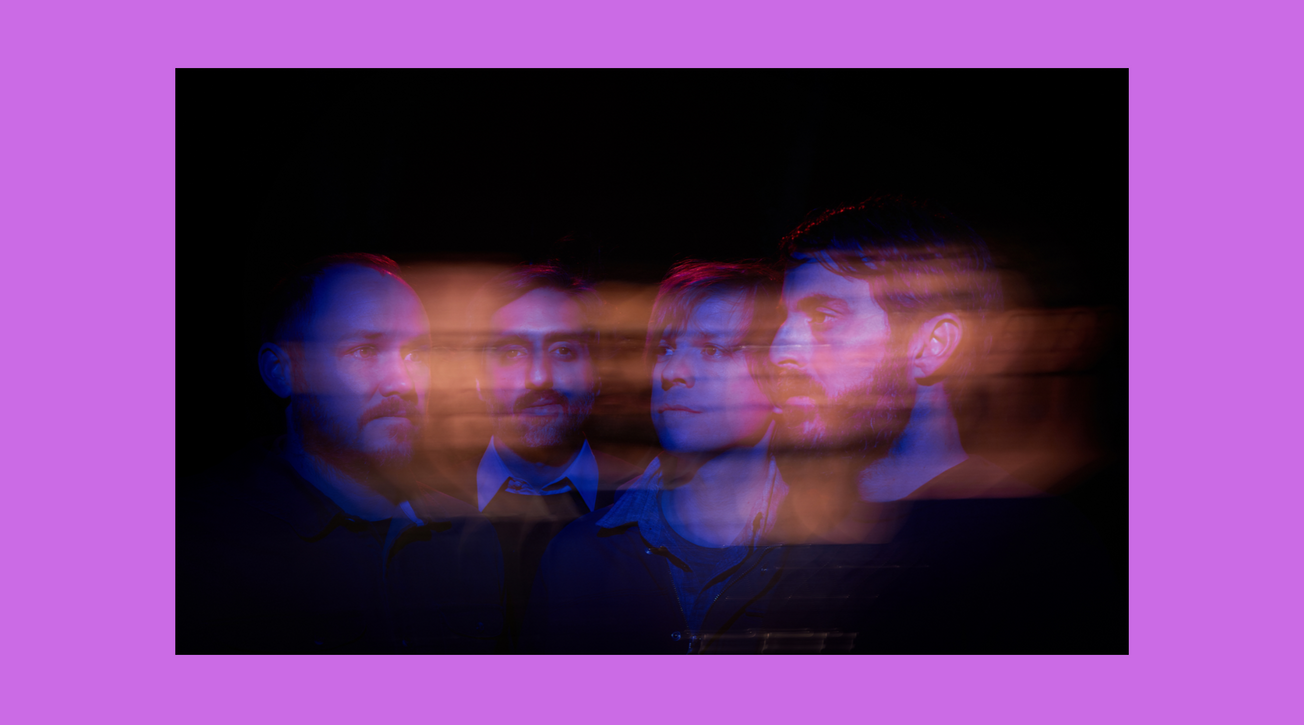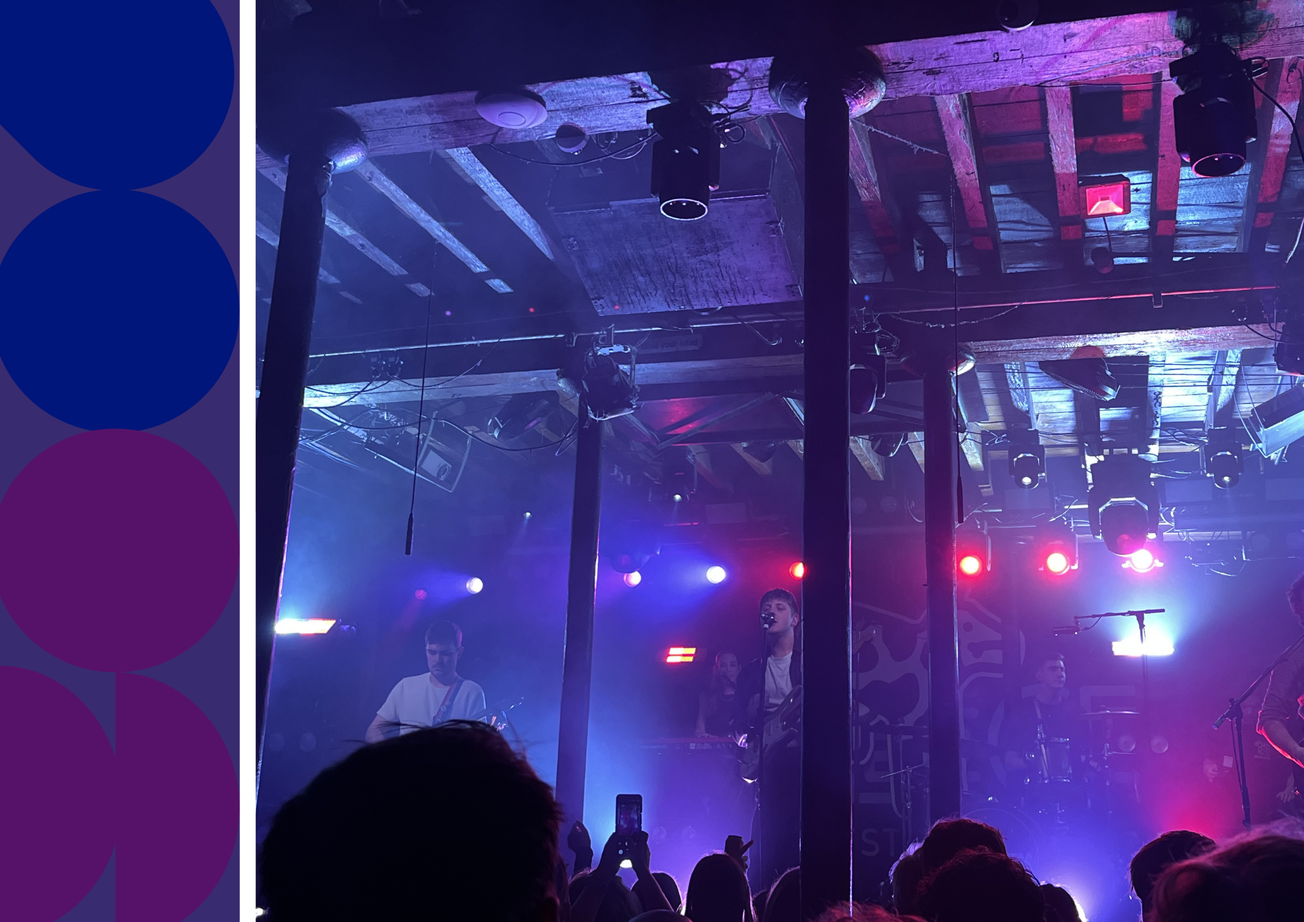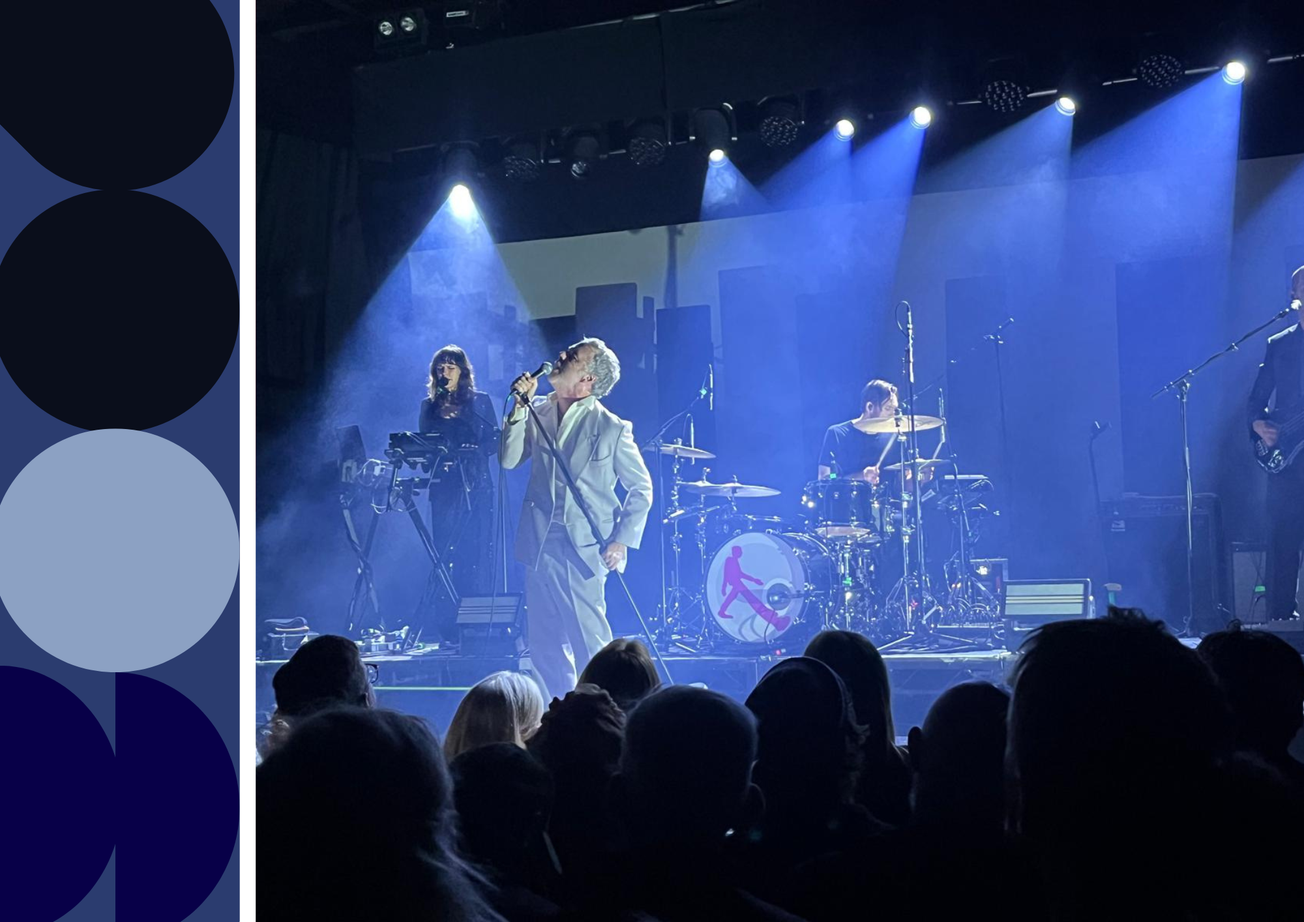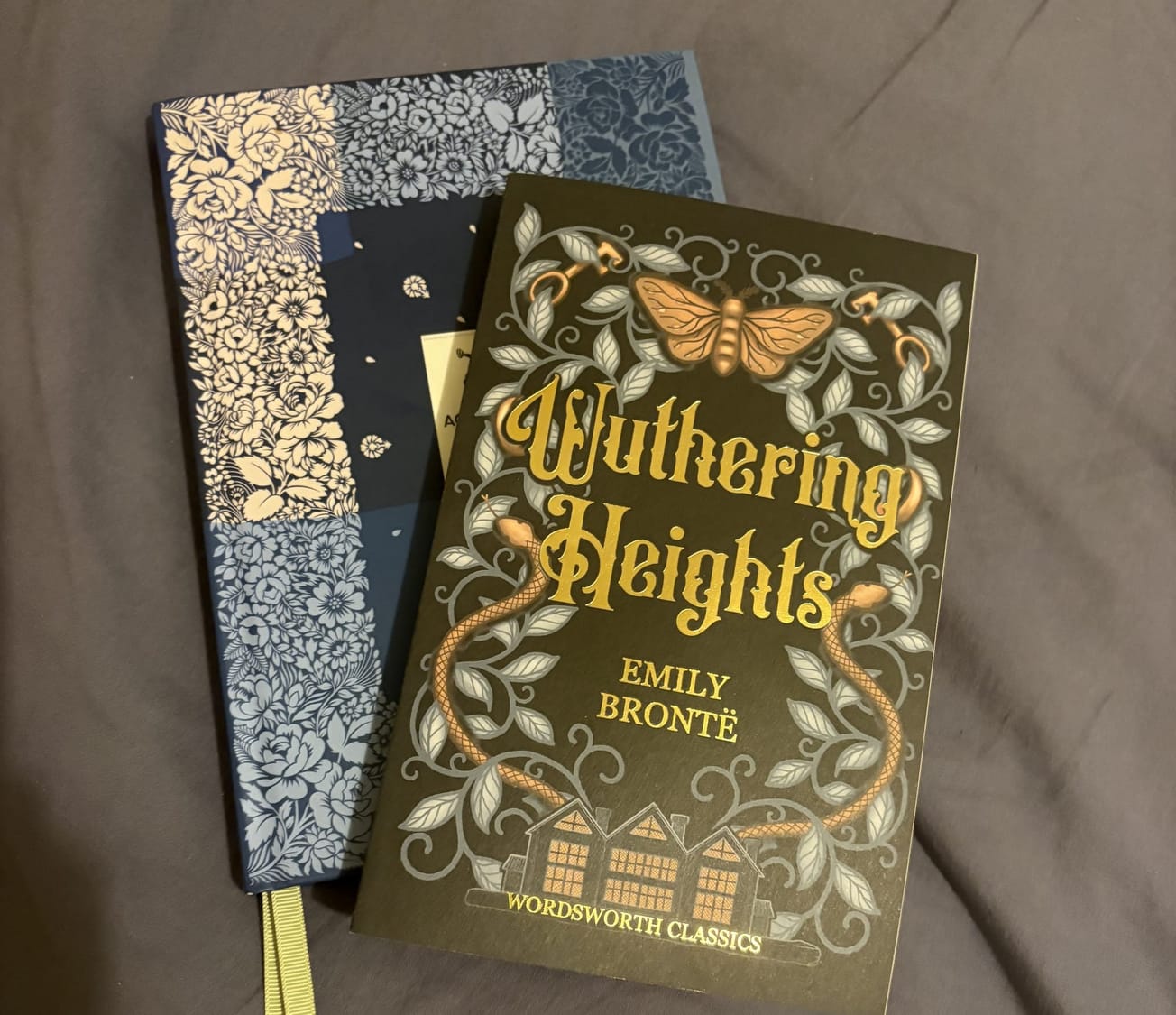By Guy Marcham, Deputy Music Editor
Explosions In The Sky are masters of the atmospheric. Effortlessly poignant. Stretching long open roads, jagged harsh mountain edges and superlunary stratospheres. The band unfurl with a gracious and elegant discordancy. A juxtaposition of thoughts , feelings and musical ruminations.
As fierce cacophonies of whirling guitars rage amongst a gelid sheet of melancholy ice, others trickle like dew dampening rich earthly branches and spawning moss. An efflorescence of all things natural and permanent. Music that you can touch. An early morning bite, a wind swept breeze that awakes and refreshes - turning anxious past resemblances into fortified compassions. Explosions In The Sky have been expertly crafting this sound for over twenty years now. Their instrumental rock arrangements tower like gentle giants. Strokes of cathartic and emotional release freckle every inch of their shimmering atmospherics and hauntingly bucolic gaze. A special band celebrating a special musical history.
Epigram Music: You’re celebrating your 20th anniversary this year – is this a stage you ever envisioned Explosions in the Sky getting to? How does it feel to be reflecting over such a long history?
Explosions in the Sky: The actual 20th year of us playing together was last year; we started playing together in March of 1999. It's a mixed bag, of course ... we feel good, mostly. A little proud, a little surprised ... I almost think I can throw any adjective here and it works. We feel a little old, humbled, grateful. We're on tour right now (I'm writing from a hotel room in Bologna) and with us on this tour is the first sound engineer we ever used, who did many tours with us in Europe over our first 10 years of being in a band. Today we walked around and just talked about old tours, old shows.
EM: What first drew you towards creating instrumental music?
EITS: We started off thinking we would have vocals. We started writing a bunch of music pretty much from the day that Munaf, Michael and I met Chris (the three of us had grown up in the same town and had already played in bands together and then Chris moved to Austin). And we had written a handful of songs that we liked, and then we started drafting up lyrics and thinking about vocal melodies and everything. But we realised we already liked the songs as they were, and no one really wanted to sing anyway. And it gave us a lot of inspiration to see bands like Mogwai and Tortoise making really cool music that had no vocals, so we went with it.
EM: It’s been nearly four years since your last album – how have you spent those intervening years? Are you coming back with a refreshed approach?
EITS: I hope so and think so. It's been on our minds a lot lately, and we've talked a lot about it. It's the fun part, we have no idea what we will make, what it will sound like. Everything is vague right now, of course, but now that we can see the end of the touring cycle (we have dates lined up until mid-May) we'll start writing again.
EM: As an instrumental band, how do you go about adding a sense of emotion and personal expression to your music? Is this something you find comes naturally?
EITS: What all four of us all want from music is emotion and expression. And if a song doesn't have that quality, if it doesn't make us feel something, then we just start working on something else until we get to something that does have that quality. Most of us are not that technically proficient when it comes to music, and I sometimes wonder if that is actually to our benefit. To write music, we don't think in terms of scale or key, we just mess around until something moves us, and then we develop that feeling as much as we can.
What all four of us all want from music is emotion and expression. And if a song doesn't have that quality, if it doesn't make us feel something, then we just start working on something else until we get to something that does have that quality.
EM: How do you conceptualise the term post-rock? Is this something that you align yourself closely with or a label put on you by others?
EITS: Pretty much the latter. I just can't say I've ever spent time thinking about it or felt the need to call it something, except when I meet someone and they ask me to describe the band. I usually just say instrumental rock.
EM: Your last studio album was entitled ‘The Wilderness’ – is nature and the outside world something that greatly influences your music?
EITS: Ever since Munaf, Michael and I lived in West Texas, we've always talked about trying to make music that evoked those landscapes and Texas skies. And now that we've seen more of the world, it's even more so.
EM: Some of your pieces can be quite subdued and melancholy – do you find the mood of your compositions to be changing as we reach 2020?
EITS: Not really, although I don't know the tone of what we will write in upcoming songs. I think we just try to dance along the spectrum of tone. It's not like we always feel a constant way, it's always changing. So, we try to hit the melancholy, the elation, the comfort, the anxiety, the highs, the lows, the mediums.
Tickets for our 20th Anniversary Tour are now on sale...https://t.co/2LGo814aJ7 pic.twitter.com/7yQpS61MpB
— ExplosionsInTheSky (@EITS) April 19, 2019
EM: Do you think streaming services such as Spotify and today’s culture of instant entertainment dampens the emotive effective of instrumental music?
EITS: I don't. I use a streaming service every day, and to be honest I'm still just happy with the convenience. Maybe it's for the better, maybe it's not, but if I listen to a vinyl record versus streaming it still feels like the same piece of music to me.
EM: Are there any lyricists that you believe would suit the material you make? If so, who?
EITS: I wouldn't exactly rule it out, I'm sure it would make for a good experiment but, yeah, it's just not something we are seeking out. It feels like putting lyrics to one of our songs would narrow the way it could be experienced in some way, I love the broadness of interpretations. So maybe it would be better to have a singer sing without words, if that makes sense. Vocal melodies without lyrics, using drawn out syllables or a language no one knew. Although I guess that's basically Sigur Ros.
EM: Your 2011 album was titled Take Care, Take Care, Take Care – do you think that is an even more poignant message in today’s society?
EITS: I think that's one of our mostly unspoken guiding lights; we mostly try to see the good. It might be aspirational but, even in the melancholy songs, they end up feeling like comfort to us. I find it difficult to generalise about society and culture, other than just trying to seek out and support the things and people that tend toward doing the best you can do, given whatever situation you're in.
EM: What can fans expect from your 20th anniversary shows coming up?
EITS: We're just basically thinking of it as a retrospective of sorts, playing a few songs from every album. Like I said, it feels good to make it to 20 years so it's a bit of a celebration for us before we start on the next 20 years.
Featured Image: Temporary Residence PR









